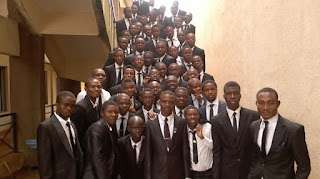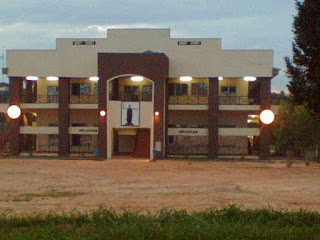by Anthony Brown Ikwueme
As one of the recipients of the Carnegie African Diaspora Fellowship (CADF) Award for 2016, I was in Nigeria from May to July of 2016 at the University Of Nigeria Faculty Of Law, Enugu Campus, where I worked with the law faculty to jointly develop a new curriculum and teaching methodology with substantial practical contents. Ultimately, the goal of the project was to help the law program at the host institution train law students who would be practice-ready upon graduation.
Nigeria is a common law country with over 170 million population, making it the most populous and arguably the biggest economy in Africa. The regulation of the program of legal education in Nigeria is shared between the Council of Legal Education (hereafter “the Council”) and the Nigerian Universities Commission (NUC). The Council is charged with the regulation of the contents of legal education in Nigeria, while the NUC has the statutory function of approving law programs at the universities and maintaining quality of legal education in Nigeria. The law program comprises a 5-year undergraduate or 4-year direct entry program at any Nigerian accredited law faculty. Upon graduation, a law student then proceeds to the Nigerian Law School for another year of vocational legal training prior to admission to the Bar.
Law Students Week
The project involved a review of the host institution’s curriculum, establishing legal clinics, partnering with law firms and courts to provide students with practical experience, and finally developing an alternative research method to supplement the poorly existing electronic sources for doing legislative history research.
First, I established stakeholders’ buy-in of the project without which full implementation of the proposals would be impossible. I successfully reviewed their curriculum and made suggestions on areas needing change in order to effectively integrate bibliographic instruction with practice-based courses. Also, the host institution had an extinct Law Clinic program. Rather than introduce a new one, I offered practical steps on how to revamp the program in the face of lack of funds that characterize public education in Nigeria. I adapted an alternative means of doing legislative history research in the absence of any developed method, which combines resources at the office of the Clerk of the State Assembly and daily newspapers that are in circulation within the host institution state.
Finally, I offered suggestions on how to help students improve their writing skills by incorporating legislative research into Legal Methods course as part of the proposed Skills program for the host institution. Besides these successes, I wish I had the opportunity to see my proposal on how to revamp the Law Clinic, as well as the attachment to courts and private law firms, fully implemented before the end of my trip. I hope to go back sometime in 2017 after the host institution would have started implementing the proposals. This project would not have been possible but for my sponsors - the Carnegie Corporation of New York and the Institute for International Education (IIE).



